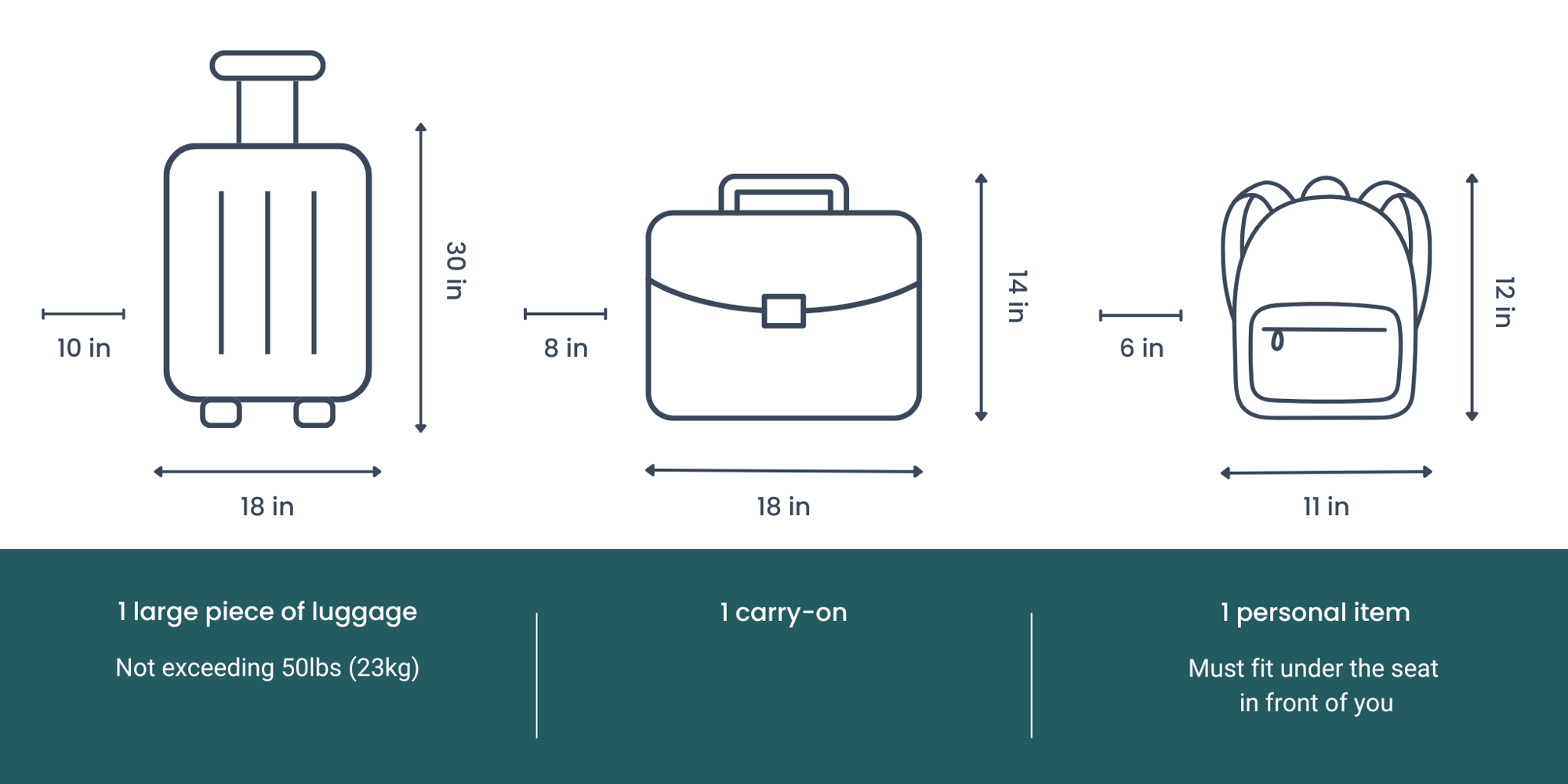Germany & Austria Destination Guide
Welcome to your adventure! This essential guide will help you prepare for an unforgettable journey through the heart of Europe.
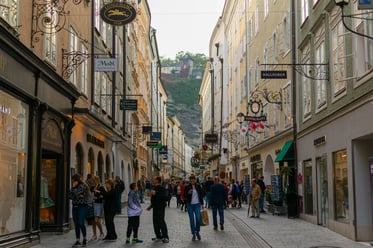
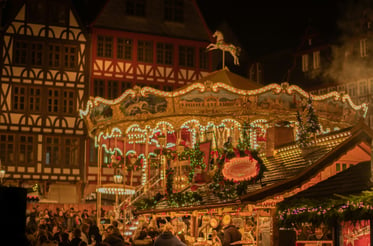
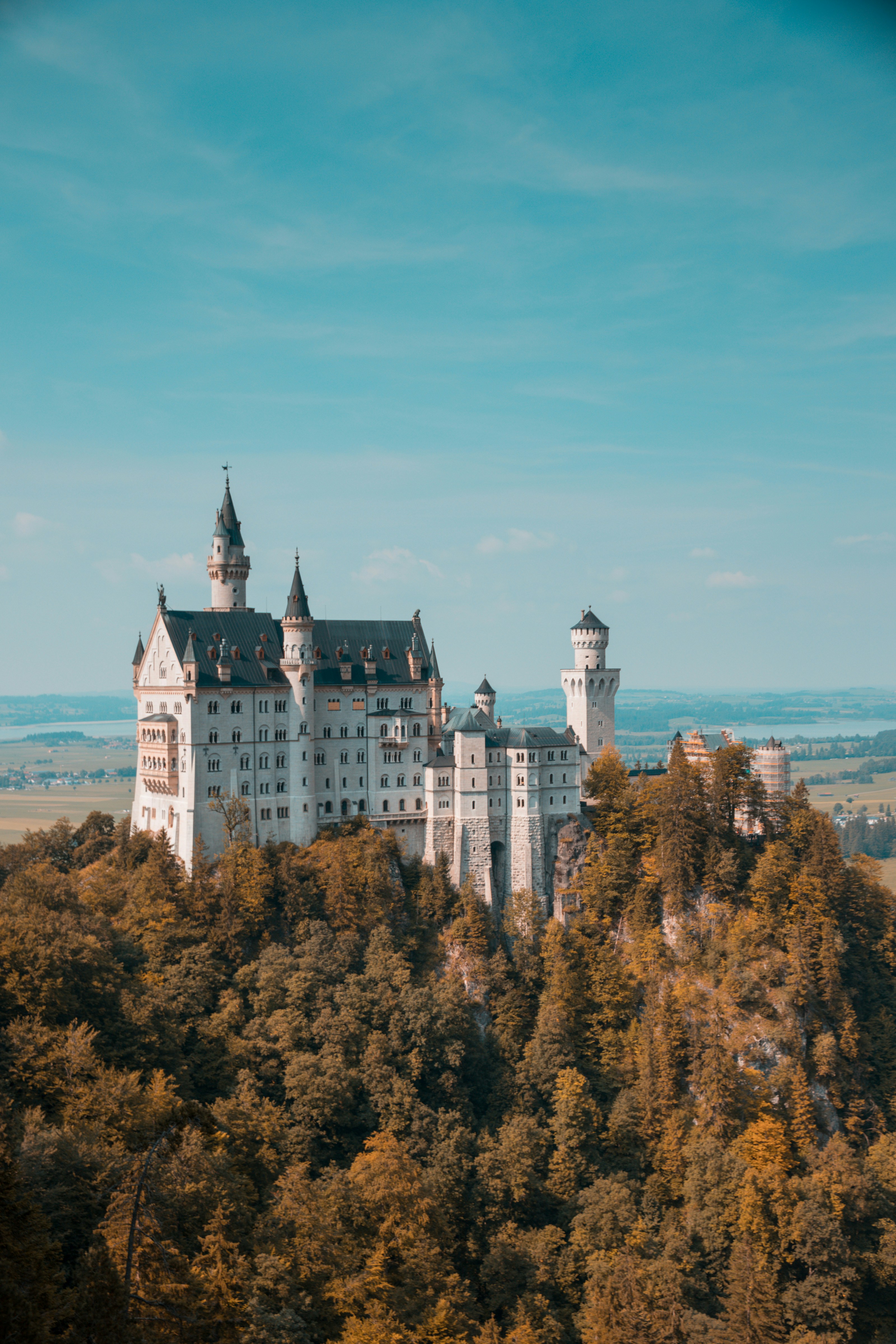
Essential Travel Information for Germany and Austria
Everything you need to know before your German and Austrian adventure
Visa & Entry Requirements
- Visas: Travelers are responsible for their own visas. Requirements can change, so check the official consular website of the country you’re visiting for the latest, country-specific information.
- Passport Validity: Must be valid for at least three months beyond your planned departure date.
- Proof of Funds: Authorities may ask for proof of sufficient funds for your stay.
- Return Ticket: Evidence of your return or onward journey may be required.
Currency & Payments
- Euro (€): is the official currency in both Germany and Austria.
- ATMs: Widely available. Inform your bank of travel plans to avoid blocked transactions.
- Credit Cards: Widely accepted in Germany and Austria, especially in stores and hotels. Smaller shops, cafés, and rural areas may only take cash, so carry some euros for small purchases.
Mobile & Internet
- SIM Cards: Available at airports, telecom stores, and some convenience stores.
- WiFi: Widely available in Germany and Austria—in cities, towns, hotels, cafés, and some public spaces—making it easy to stay connected while traveling.
- Power Adapters: Type C (European 2-pin) and Type F (German 2-pin, side clip earth)
- Cell Coverage: Is generally very good in Germany and Austria, though service may be limited in remote areas. Activate global roaming before you arrive and check for any roaming charges.
Time Zone
- Central European Time (CET) – UTC +1
- Central European Summer Time (CEST) – UTC +2 (March to October)
- Germany and Austria are 6 hours ahead of U.S. Eastern Time (during standard time)
Climate & Weather
- Seasons: Four distinct seasons with warm summers and cold winters.
- Summer (June-August): Pleasant with temperatures 20-30°C (68-86°F). Peak tourist season.
- Winter (December-February): Cold with temperatures from -5 to 5°C (23-41°F). Excellent for winter sports in the Alps.
- Spring & Autumn: Mild temperatures and fewer tourists. Great for sightseeing.
Emergency Contacts
- Emergency Number: 📞 112 (Police, Fire, Ambulance)
- U.S. Embassy in Germany: 📞 +49 30 8305 0
- U.S. Embassy in Austria: 📞 +43 1 31339 0
- Police Non-Emergency: 📞 110 (Germany) / 133 (Austria)
Packing Checklist
Use this checklist to ensure you pack everything you need for your German and Austrian adventure
Travel Documents & Essentials
- Passport (valid for at least 3 months beyond your stay)
- Visa documents (if applicable)
- Flight itinerary & hotel reservations
- Travel insurance details
- Credit/debit cards
- Euros (€) - some cash for small purchases
- International driver's license (if planning to drive)
- Travel wallet or money belt
- Copies of important documents (separate from originals)
- Emergency contact information
Clothing & Accessories
- Lightweight clothing for summer / warm layers for winter
- Comfortable walking shoes (European cities have cobblestone streets)
- Rain jacket or umbrella (weather can be unpredictable)
- Warm hat, gloves, and scarf (if traveling in winter)
- Smart-casual outfit for restaurants and cultural events
- Swimwear (if visiting thermal baths or lakes)
- Sunglasses and sunhat (especially for summer)
- Day backpack for sightseeing
- Travel pillow for long train journeys
- Comfortable socks (you'll be walking a lot)
Health & Safety
- Prescription medications (in original packaging with prescriptions)
- Basic first-aid kit
- Pain relievers and other personal medications
- Travel-sized hand sanitizer
- Face masks (if required or preferred)
- Insect repellent (for summer and rural areas)
- Sunscreen (especially if visiting the Alps)
- Reusable water bottle (tap water is excellent and safe to drink)
- Personal toiletries
- Travel insurance card
Electronics & Gadgets
- Power adapter
- Smartphone & charger
- Camera & charger
- Portable charger/power bank
- Headphones
- E-reader or books for train journeys
- Travel apps (download maps, translation, and transport apps)
- USB cables
- Travel voltage converter if needed (Europe uses 230V)
- Memory cards for your camera
Packing Tips
- Pack layers! The weather can change quickly, especially in the Alpine regions.
- Bring comfortable walking shoes as you'll be exploring many historic sites with cobblestone streets.
- Germans and Austrians tend to dress smartly, especially in cities and at cultural events.
- Many hotels provide basic toiletries, so you can save space in your luggage.
- If visiting during the Christmas markets season (November-December), pack extra-warm clothing.
Top Destinations & Experiences
Discover the incredible places you'll visit during your journey through Germany and Austria

Berlin
Germany's capital is a dynamic city with a fascinating history, vibrant culture, and a cutting-edge art scene.
Must-See Attractions:
- Brandenburg Gate – The iconic symbol of Berlin and German reunification.
- Berlin Wall Memorial – Trace the path of the historic barrier that once divided the city.
- Museum Island – A UNESCO World Heritage site housing five world-class museums.
- Reichstag Building – Visit the glass dome for panoramic views of the city.
Munich & Bavaria
Experience the heart of traditional German culture in Munich and the picturesque Bavarian countryside.
Bavarian Highlights:
- Marienplatz & Glockenspiel – The central square with its famous animated clock tower.
- English Garden – One of the world's largest urban parks, complete with beer gardens.
- Neuschwanstein Castle – The fairy-tale castle that inspired Disney.
- Bavarian Alps – Stunning mountain scenery with charming villages.
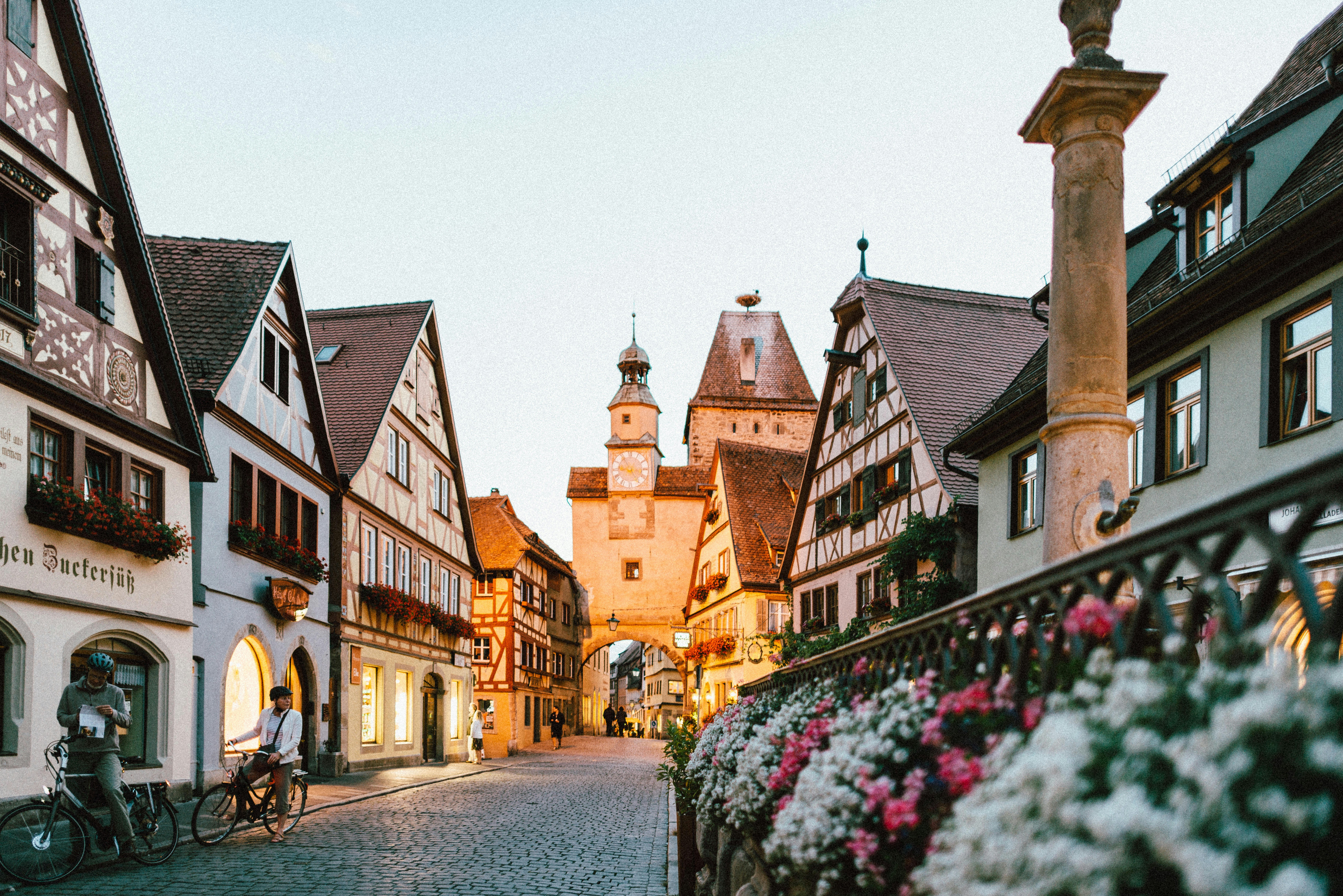
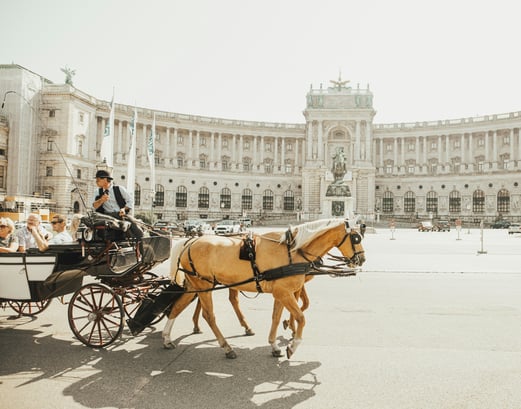
Vienna
Austria's elegant capital blends imperial grandeur with a rich musical heritage and café culture.
Vienna Highlights:
- Schönbrunn Palace – The magnificent summer residence of the Habsburg rulers.
- St. Stephen's Cathedral – Gothic masterpiece in the heart of the city.
- Vienna State Opera – One of the world's leading opera houses.
- Naschmarkt – Vibrant market with food stalls and restaurants.
Salzburg & Austrian Alps
The birthplace of Mozart and filming location for "The Sound of Music" sits amid spectacular Alpine scenery.
Alpine Highlights:
- Salzburg Old Town – UNESCO World Heritage site with Baroque architecture.
- Hohensalzburg Fortress – Medieval castle overlooking the city.
- Hallstatt – Picturesque lakeside village in the Salzkammergut region.
- Grossglockner Alpine Road – Scenic drive through Austria's highest mountains.

Must-Try Foods
German and Austrian cuisine offer hearty dishes, delectable pastries, and world-class beverages. Here are some specialties you shouldn't miss:
Pretzel (Brezel)
Freshly baked twisted bread, often enjoyed with butter or cheese.
Wiener Schnitzel
Thin, breaded and fried veal or pork cutlet, a quintessential Austrian dish.
Sauerbraten
Tender pot roast marinated for days in a mixture of vinegar, spices, and herbs.
Käsespätzle
Soft egg noodles layered with melted cheese and crispy onions.
Sachertorte
Famous Viennese chocolate cake with apricot jam and dark chocolate glaze.
German Beer
Try different varieties from wheat beer to pilsner—Germany has over 1,500 breweries!
Christmas Markets
Experience the magic of traditional Christmas markets in Germany and Austria, with their enchanting lights, festive music, and delicious seasonal treats
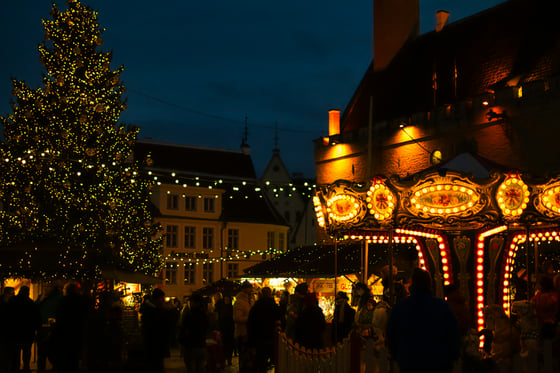
Munich Christmas Markets
Munich transforms into a winter wonderland during Advent, with Christmas markets dotting the city center and beyond. Most Munich Christmas markets run from late November through December 24th. Visit on weekdays for smaller crowds.
Markets:
- Christkindlmarkt at Marienplatz: The main market in front of the New Town Hall features over 140 stalls selling traditional Bavarian gifts, ornaments, and seasonal foods. Don't miss the 85-foot Christmas tree illuminated with 3,000 lights!
- Medieval Christmas Market: Located at Wittelsbacher Platz, this unique market offers a journey back in time with medieval crafts, foods, and entertainment in a historical atmosphere.
Vienna Christmas Markets
Vienna's Christmas markets combine imperial elegance with festive charm, offering some of Europe's most enchanting holiday experiences. Vienna's markets typically run from mid-November through December 26th, with some continuing into early January for New Year celebrations.
Market Specialties:
- Viennese Christmas Market at City Hall: The iconic Christkindlmarkt at Rathausplatz features over 150 stalls set against the magnificent City Hall. The surrounding park becomes an illuminated wonderland with light displays and ice skating paths.
- Schönbrunn Palace Christmas Market: Set in front of the imperial palace, this market offers a regal atmosphere with high-quality handicrafts, concerts, and a stunning backdrop of the UNESCO World Heritage site.
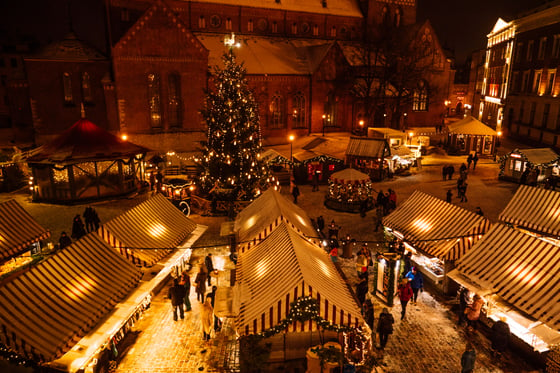
Christmas Market Essentials
What to Bring
- Cash (small denominations)
- Reusable shopping bag
- Warm gloves that allow dexterity
- Thermal mug for mulled wine
Best Souvenirs
- Handmade wool mittens & socks
- Baltic amber jewelry
- Traditional wooden decorations
- Local spirits and liqueurs
Winter Tips
- Layer clothing for changing temperatures
- Wear non-slip, waterproof boots
- Visit markets on weekdays for fewer crowds
- Try all the different hot drinks!
Must-Try Treats
German Specialties
- Glühwein (mulled wine) - the quintessential market beverage
- Gebrannte Mandeln (candied almonds) - sweet and crunchy
- Lebkuchen - traditional German gingerbread
- Bratwurst - grilled sausages served in bread rolls
Austrian Specialties
- Vanillekipferl - crescent-shaped vanilla cookies
- Punsch - hot alcoholic punch with fruit juices
- Maroni - hot roasted chestnuts
- Kartoffelpuffer - potato pancakes with apple sauce
Local Culture & Responsible Travel
Tips for respectful travel and cultural awareness during your adventure
Cultural Etiquette
- Punctuality: Being on time is highly valued. In fact, arriving 5-10 minutes early is considered 'on time'.
- Greetings: A firm handshake with direct eye contact is the standard greeting. In Bavaria, you might hear 'Grüß Gott' instead of 'Guten Tag'.
- Formality: Address people with their title (Herr/Frau) and last name until invited to use first names.
- Table Manners: Keep your hands visible above the table, not in your lap. Say 'Guten Appetit' before eating.
- Public Behavior: Germans and Austrians value order and quiet. Avoid loud conversations in public spaces.
Responsible Tourism
- Environmental Awareness: Both countries take recycling and environmental protection seriously. Follow local sorting guidelines.
- Public Transportation: Use the excellent public transit systems to reduce your carbon footprint.
- Sustainable Practices: Bring reusable shopping bags, as plastic bags often cost extra.
- Cultural Heritage: Respect historical sites and follow all posted rules and guidelines.
- Local Economy: Support small local businesses, bakeries, and restaurants instead of international chains.
⚠️ Important Safety Note
While Germany and Austria are generally very safe countries, always be vigilant in tourist areas regarding pickpocketing. Also, be aware that Holocaust denial and Nazi symbols are illegal and can result in criminal charges. Mountainous areas carry some risk—pack appropriately, stay hydrated, and inform someone of your plans if hiking or skiing.
Additional Travel Tips
- Sunday Closures: Most shops are closed on Sundays. Plan your shopping accordingly.
- Water at Restaurants: Tap water isn't automatically served, and bottled water is usually served (and charged for).
- Plant-based Options: While traditional German and Austrian cuisine is often meat-heavy, vegetarians and vegans will find plenty to enjoy. Cities like Berlin, Vienna, and Salzburg have growing vegetarian and vegan scenes, bakeries offer sweet and savory treats, and sides like potatoes, sauerkraut, and dumplings are widely available.
- Transportation: Munich includes 24-hour public transport passes for the group. Vienna includes 48-hour transport passes. Always validate your ticket before boarding trains and buses to avoid hefty fines.
- Train Transfers: Trains have onboard restrooms.
- Munich → Salzburg: ~1.5–2 hours
- Salzburg → Vienna: ~3 hours
- Train Transfers: Trains have onboard restrooms.
- Cash is King: Many places still prefer or only accept cash.
- Walking Considerations: Expect city terrain, cobblestones, and frequent walking, often 30 minutes–3 hours at a time. Duration varies by city and group pace. Many activities begin with walking from the hotel; if distances exceed ~1 km or 15 minutes, public transport or transfers may be provided.
- Water Safety: Tap water in Germany and Austria is safe to drink unless otherwise indicated. In Austria, mountain water is pristine, and Vienna’s tap water comes from the Alps. For the environment, use a reusable bottle instead of buying bottled water.
- Language Basics: Learning a few key phrases in German is appreciated.
- Drinking Age: Beer and wine at 16, spirits at 18. ID may be required.
- Need help searching for a flight? We recommend Skyscanner.com to compare different routes and rates. Click here to search!
Tipping
Tipping Suggestions: Tips for guides, drivers and restaurants are not included. Tips provide supplemental income, and, while not mandatory, are greatly appreciated. If the local teams have added to the experience, please reward them.
| Guides | USD $10-15 per person/per day | |
| Drivers | USD $8-10 per person/per day | |
| Restaurants | 10%-20% of total bill |
Luggage Restrictions
